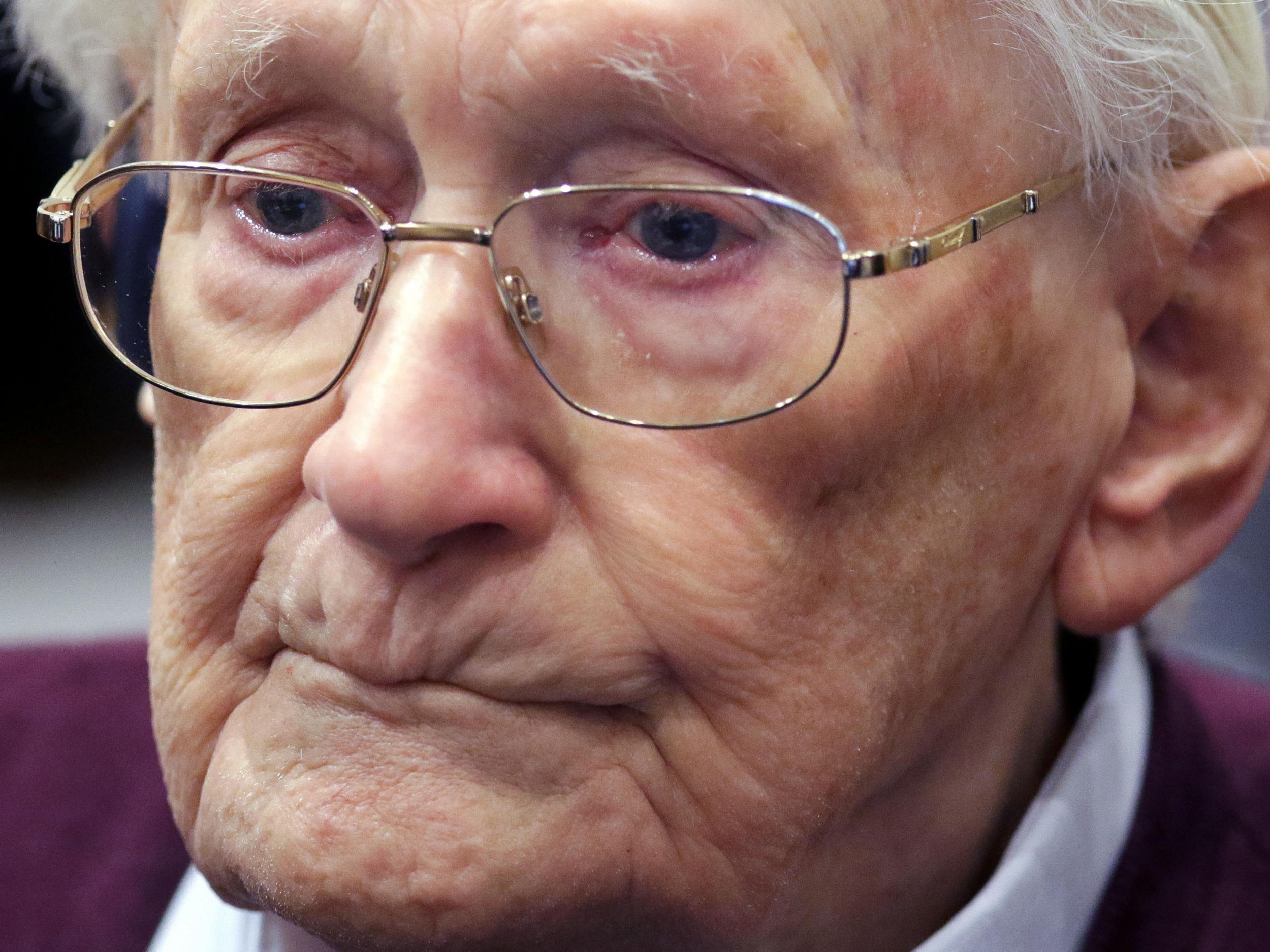Oskar Groening: 'Bookkeeper of Auschwitz' dies before starting prison sentence
Former SS guard avoids jail after series of appeals

Your support helps us to tell the story
From reproductive rights to climate change to Big Tech, The Independent is on the ground when the story is developing. Whether it's investigating the financials of Elon Musk's pro-Trump PAC or producing our latest documentary, 'The A Word', which shines a light on the American women fighting for reproductive rights, we know how important it is to parse out the facts from the messaging.
At such a critical moment in US history, we need reporters on the ground. Your donation allows us to keep sending journalists to speak to both sides of the story.
The Independent is trusted by Americans across the entire political spectrum. And unlike many other quality news outlets, we choose not to lock Americans out of our reporting and analysis with paywalls. We believe quality journalism should be available to everyone, paid for by those who can afford it.
Your support makes all the difference.A man dubbed the “bookkeeper of Auschwitz” who was one of the last people to be convicted for the crimes of the Holocaust has died aged 96, German media have reported.
Oskar Groening was sentenced in 2015 to four years imprisonment for his role as an accessory to the murder of 300,000 of the Auschwitz concentration camp’s roughly 1 million victims.
The former SS guard did not kill anyone but counted cash and valuables taken from victims on their arrival at the camp.
Due to a series of appeals, he never began his prison sentence.
Der Spiegel said Groening died in hospital on Friday, but prison authorities had yet to receive a death certificate.
Groening’s court battle was seen as one of the last major trials related to the Holocaust, during which some 6 million Jewish people were murdered by Adolf Hitler’s regime.
He came to attention in 2005 after giving interviews about his work in the camp in an attempt to persuade Holocaust deniers that the genocide had taken place. At the time, most Holocaust prosecutions focused on leaders rather than rank-and-file perpetrators.
Groening admitted he was morally guilty for the work he carried out at Auschwitz and said he had been an enthusiastic Nazi when he was sent to work at Auschwitz in 1942 at the age of 21.
His role involved sending bank notes he found in Jewish people's luggage to SS offices in Berlin, where they helped to fund the Nazi war effort.
During Groening’s trial, Auschwitz prisoner Kathleen Zahavi told how her “happy childhood” was shattered when her family were kidnapped and her mother and aunt were murdered.
They were “treated worse than animals” at the death camp in occupied Poland, she said, telling a visibly distressed Groening: “I hope the images of what went on there will stay with you for the rest of your days”.
The court that convicted Groening ruled he was part of the “machinery of death”, helping the camp function and gathering funds for the Nazi cause.
Reuters contributed to this report
Join our commenting forum
Join thought-provoking conversations, follow other Independent readers and see their replies
Comments